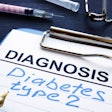Dear LabPulse Member,
The outlook on the novel coronavirus outbreak is changing by the hour. With the global public health crisis officially declared a pandemic by the World Health Organization, some states, including California, are now ordering their residents to stay at home, aside from running essential errands.
Thankfully, there has been some good news, with high-throughput testing coming into use. Two companies -- Roche and Thermo Fisher Scientific -- have just received emergency use authorizations (EUAs) for high-throughput coronavirus tests, following rapid approvals by the U.S. Food and Drug Administration (FDA).
Quest Diagnostics has introduced its own laboratory-developed (LDT) test for COVID-19, which it said can be ordered by any healthcare provider in the U.S., and is ramping up capacity. Quest's announcement followed LabCorp's introduction of a nucleic acid amplification test for the novel coronavirus.
The lack of availability of testing has been a big source of criticism for the administration, given the problems with test kits provided by the U.S. Centers for Disease Control and Prevention and the slowness of the FDA to allow labs to develop their own tests.
During a recent webinar, one expert showed how the U.S. stacked up against other countries when it comes to testing. With 23 tests per million people, the U.S. has been at the bottom of industrialized countries on coronavirus screening. In comparison, South Korea has been administering 3,600 tests per 1 million people.
Do we now dare to be hopeful for a turnaround on testing in the U.S.? Diagnostic testing was certainly a big focus in a recent news briefing held by President Donald Trump with leaders of the national effort against the coronavirus. Trump outlined new measures, including loosening red tape for hospitals and healthcare providers to allow them to tackle the outbreak, and pledged $50 million in federal emergency funding. The products developed by Thermo Fisher and Roche will add an additional 1.4 million tests, Trump said. Drive-through testing is also part of the plan to make testing more accessible.
Meanwhile, legislators have been working on a relief package that includes provisions to eliminate the cost of testing for consumers. The U.S. House of Representatives passed the Families First Coronavirus Response Act, which covers costs of testing, but it has been criticized by the American Association for Clinical Chemistry and other organizations because it excludes laboratory-developed tests that do not yet have emergency use authorization.
In addition to the lack of availability of the tests themselves, shortages of reagents for LDTs have been problematic. As contributing writer Joseph Constance reported, vendors are implementing plans to address supply chain issues and meet the demands of customers for reagents.
You can keep on top of outbreak news by visiting our Microbiology Community regularly.
Finally, while coronavirus has been dominating the news, LabPulse.com has also been keeping an eye on clinical advances in other areas. Time permitting amid the crisis, you can read our update on a potential new application for blood testing to predict the risk of kidney transplant failures in patients with end-stage renal disease and a microbial DNA test that identifies cancer types based on microbiome profiling.







